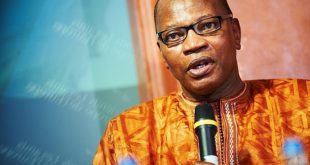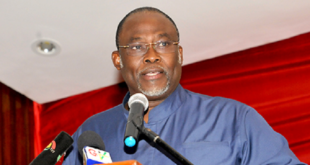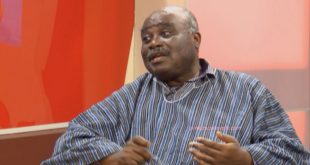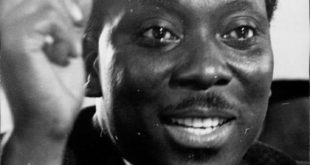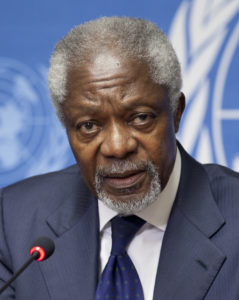
Kofi Atta Annan (8 April 1938 – 18 August 2018) was a Ghanaian diplomat who served as the seventh secretary-general of the United Nations from 1997 to 2006. Annan and the UN were the co-recipients of the 2001 Nobel Peace Prize. He was the founder and chairman of the Kofi Annan Foundation, as well as chairman of The Elders, an international organisation founded by Nelson Mandela.
Annan studied economics at Macalester College, international relations at the Graduate Institute Geneva, and management at MIT. Annan joined the UN in 1962, working for the World Health Organization’s Geneva office. He went on to work in several capacities at the UN Headquarters, including serving as the Under-Secretary-General for peacekeeping between March 1992 and December 1996. He was appointed secretary-general on 13 December 1996 by the Security Council and later confirmed by the General Assembly, making him the first officeholder to be elected from the UN staff itself. He was re-elected for a second term in 2001 and was succeeded as secretary-general by Ban Ki-moon in 2007.
As secretary-general, Annan reformed the UN bureaucracy, worked to combat HIV/AIDS (especially in Africa) and launched the UN Global Compact. He was criticised for not expanding the Security Council and faced calls for his resignation after an investigation into the Oil-for-Food Programme, but was largely exonerated of personal corruption. After the end of his term as secretary-general, he founded the Kofi Annan Foundation in 2007 to work on international development. In 2012, Annan was the UN–Arab League Joint Special Representative for Syria to help find a resolution to the ongoing conflict there. Annan quit after becoming frustrated with the UN’s lack of progress with regards to conflict resolution. In September 2016, Annan was appointed to lead a UN commission to investigate the Rohingya crisis. He died in 2018 and was given a state funeral.
Early years and education
Kofi Annan was born in Kumasi in the Gold Coast (now Ghana) on 8 April 1938. His twin sister Efua Atta, who died in 1991, shared the middle name Atta, which in the Akan language means “twin”. Annan and his sister were born into one of the country’s Fante aristocratic families; both of their grandfathers and their uncle were Fante paramount chiefs, and their brother Kobina would go on to become Ghana’s ambassador to Morocco.
In the Akan names tradition, some children are named according to the day of the week they were born, sometimes in relation to how many children precede them. Kofi in Akan is the name that corresponds with Friday, the day on which Annan was born. The last name Annan in Fante means fourth-born child. Annan said that his surname rhymes with “cannon” in English.
From 1954 to 1957, Annan attended the elite Mfantsipim, an all-boys Methodist boarding school in Cape Coast founded in the 1870s. Annan said that the school taught him that “suffering anywhere, concerns people everywhere”. In 1957, the year Annan graduated from Mfantsipim, the Gold Coast gained independence from the UK and began using the name “Ghana”.
In 1958, Annan began studying economics at the Kumasi College of Science and Technology, now the Kwame Nkrumah University of Science and Technology of Ghana. He received a Ford Foundation grant, enabling him to complete his undergraduate studies in economics at Macalester College in Saint Paul, Minnesota, US, in 1961. Annan then completed a diplôme d’études approfondies DEA degree in International Relations at the Graduate Institute of International and Development Studies in Geneva, Switzerland, from 1961 to 1962. After some years of work experience, he studied at the MIT Sloan School of Management (1971–72) in the Sloan Fellows program and earned a master’s degree in management.
Annan was fluent in English, French, Akan, and some Kru languages as well as other African languages.
Diplomatic career
In 1962, Annan started working as a budget officer for the World Health Organization, an agency of the United Nations (UN). From 1974 to 1976, he worked as a manager of the state-owned Ghana Tourist Development Company in Accra. In 1980 he became the head of personnel for the office of the UN High Commission for Refugees (UNHCR) in Geneva. Between 1981 and 1983, he was a member of the Governing Board of the International School of Geneva. In 1983 he became the director of administrative management services of the UN Secretariat in New York. In 1987, Annan was appointed as an assistant secretary-general for Human Resources Management and Security Coordinator for the UN system. In 1990, he became Assistant Secretary-General for Program Planning, Budget and Finance, and Control.
When Secretary-General Boutros Boutros-Ghali established the Department of Peacekeeping Operations (DPKO) in 1992, Annan was appointed to the new department as Deputy to then Under-Secretary-General Marrack Goulding. Annan replaced Goulding in March 1993 as Under-Secretary-General of that department after American officials persuaded Boutros-Ghali that Annan was more flexible and more aligned with the role that the Pentagon expected of UN peacekeepers in Somalia. On 29 August 1995, while Boutros-Ghali was unreachable on an aeroplane, Annan instructed United Nations officials to “relinquish for a limited period of time their authority to veto air strikes in Bosnia”. This move allowed NATO forces to conduct Operation Deliberate Force and made him a favourite of the United States. According to Richard Holbrooke, Annan’s “gutsy performance” convinced the United States that he would be a good replacement for Boutros-Ghali.
He was appointed a special representative of the Secretary-General to the former Yugoslavia, serving from November 1995 to March 1996.
Criticism
In 2003, retired Canadian general Roméo Dallaire, who was force commander of the United Nations Assistance Mission for Rwanda (UNAMIR), claimed that Annan was overly passive in his response to the imminent genocide. In his book Shake Hands with the Devil: The Failure of Humanity in Rwanda (2003), Dallaire asserted that Annan held back UN troops from intervening to settle the conflict and from providing more logistical and material support. Dallaire claimed that Annan failed to respond to his repeated faxes asking for access to a weapons depository; such weapons could have helped Dallaire defend the endangered Tutsis. In 2004, ten years after the genocide in which an estimated 800,000 people were killed, Annan said: “I could and should have done more to sound the alarm and rally support.”
In his book Interventions: A Life in War and Peace, Annan again argued that the United Nations Department of Peacekeeping Operations could have made better use of the media to raise awareness of the violence in Rwanda and put pressure on governments to provide the troops necessary for an intervention. Annan explained that the events in Somalia and the collapse of the UNOSOM II mission fostered a hesitation among UN member states to approve robust peacekeeping operations. As a result, when the UNAMIR mission was approved just days after the battle, the resulting force lacked the troop levels, resources and mandate to operate effectively.
United Nations Secretary-General (1997–2006)
Appointment
In 1996, Secretary-General Boutros Boutros-Ghali ran unopposed for a second term. Although he won 14 of the 15 votes on the Security Council, he was vetoed by the United States. After four deadlocked meetings of the Security Council, Boutros-Ghali suspended his candidacy, becoming the only secretary-general ever to be denied a second term. Annan was the leading candidate to replace him, beating Amara Essy by one vote in the first round. However, France vetoed Annan four times before finally abstaining. The UN Security Council recommended Annan on 13 December 1996. Confirmed four days later by the vote of the General Assembly, he started his first term as secretary-general on 1 January 1997.
Due to Boutros-Ghali’s overthrow, a second Annan term would give Africa the office of Secretary-General for three consecutive terms. In 2001, the Asia-Pacific Group agreed to support Annan for a second term in return for the African Group’s support for an Asian secretary-general in the 2006 selection. The Security Council recommended Annan for a second term on 27 June 2001, and the General Assembly approved his reappointment on 29 June 2001.
Activities
Recommendations for UN reform
Soon after taking office in 1997, Annan released two reports on management reform. On 17 March 1997, the report Management and Organisational Measures (A/51/829) introduced new management mechanisms through the establishment of a cabinet-style body to assist him and the UN’s activities in accordance with four core missions. A comprehensive reform agenda was issued on 14 July 1997 titled Renewing the United Nations: A Programme for Reform (A/51/950). Key proposals included the introduction of strategic management to strengthen unity of purpose, the establishment of the position of deputy secretary-general, a 10-per cent reduction in posts, a reduction in administrative costs, the consolidation of the UN at the country level, and reaching out to civil society and the private sector as partners. Annan also proposed to hold a Millennium Summit in 2000. After years of research, Annan presented a progress report, In Larger Freedom, to the UN General Assembly on 21 March 2005. Annan recommended Security Council expansion and a host of other UN reforms.
On 31 January 2006, Annan outlined his vision for a comprehensive and extensive reform of the UN in a policy speech to the United Nations Association UK. The speech, delivered at Central Hall, Westminster, also marked the 60th anniversary of the first meetings of the General Assembly and Security Council.
On 7 March 2006, he presented to the General Assembly his proposals for a fundamental overhaul of the United Nations Secretariat. The reform report is titled Investing in the United Nations, For a Stronger Organization Worldwide.
On 30 March 2006, he presented to the General Assembly his analysis and recommendations for updating the entire work programme of the United Nations Secretariat. The reform report is titled Mandating and Delivering: Analysis and Recommendations to Facilitate the Review of Mandates.
Regarding the UN Human Rights Council, Annan said “declining credibility” had “cast a shadow on the reputation of the United Nations system. Unless we re-make our human rights machinery, we may be unable to renew public confidence in the United Nations itself.” He believed that, despite its flaws, the council could do good.
In March 2000, Annan appointed the Panel on United Nations Peace Operations to assess the shortcomings of the then existing system and to make specific and realistic recommendations for change. The panel was composed of individuals experienced in conflict prevention, peacekeeping and peace-building. The report it produced, which became known as the Brahimi Report, after the chair of the Panel Lakhdar Brahimi, called for “renewed political commitment on the part of Member States, significant institutional change, and increased financial support.” The Panel further noted that to be effective, UN peacekeeping operations must be adequately resourced and equipped, and operate under clear, credible and achievable mandates. In a letter transmitting the report to the General Assembly and Security Council, Annan stated that the Panel’s recommendations were essential to making the United Nations truly credible as a force for peace. Later that same year, the Security Council adopted several provisions relating to peacekeeping following the report, in Resolution 1327.
Millennium Development Goals
In 2000, Annan issued a report titled We the Peoples: the Role of the United Nations in the 21st Century. The report called for member states to “put people at the centre of everything we do”: “No calling is more noble, and no responsibility greater, than that of enabling men, women and children, in cities and villages around the world, to make their lives better.”
In the final chapter of the report, Annan called to “free our fellow men and women from the abject and dehumanizing poverty in which more than 1 billion of them are currently confined”.:
At the Millennium Summit in September 2000, national leaders adopted the Millennium Declaration, which the United Nations Secretariat subsequently implemented as the Millennium Development Goals in 2001.
United Nations Information Technology Service
Within the We the Peoples document, Annan suggested the establishment of a United Nations Information Technology Service (UNITeS), a consortium of high-tech volunteer corps, including NetCorps Canada and Net Corps America, which United Nations Volunteers (UNV) would coordinate. In the “Report of the high-level panel of experts on information and communication technology”, suggesting a UN ICT Task Force, the panel welcomed the establishment of UNITeS. It made suggestions on its configuration and implementation strategy, including that ICT4D volunteering opportunities make mobilising “national human resources” (local ICT experts) within developing countries a priority for both men and women. The initiative was launched at the UNV and was active from February 2001 to February 2005. Initiative staff and volunteers participated in the World Summit on the Information Society (WSIS) in Geneva in December 2003.
United Nations Global Compact
In an address to the World Economic Forum on 31 January 1999, Annan argued that the “goals of the United Nations and those of business can, indeed, be mutually supportive” and proposed that the private sector and the United Nations initiate “a global compact of shared values and principles, which will give a human face to the global market”.
On 26 July 2000, the United Nations Global Compact was officially launched at UN headquarters in New York. It is a principle-based framework for businesses which aims to “[c]atalyse actions in support of broader UN goals, such as the Millennium Development Goals (MDGs)”. The Compact established ten core principles in the areas of human rights, labour, the environment and anti-corruption. Under the Compact, companies commit to the ten principles and are brought together with UN agencies, labour groups and civil society to implement them effectively.
Establishment of The Global Fund
Towards the end of the 1990s, increased awareness of the destructive potential of epidemics such as HIV/AIDS pushed public health issues to the top of the global development agenda. In April 2001, Annan issued a five-point “Call to Action” to address the HIV/AIDS pandemic. Stating it was a “personal priority”, Annan proposed the establishment of a Global AIDS and Health Fund, “dedicated to the battle against HIV/AIDS and other infectious diseases”, to stimulate the increased international spending needed to help developing countries confront the HIV/AIDS crisis. In June of that year, the General Assembly of the United Nations committed to creating such a fund during a special session on AIDS, and the permanent secretariat of the Global Fund was subsequently established in January 2002.
Responsibility to Protect
Following the failure of Annan and the international community to intervene in the genocide in Rwanda and in Srebrenica, Annan asked whether the international community had an obligation in such situations to intervene to protect civilian populations. In a speech to the General Assembly on 20 September 1999, “to address the prospects for human security and intervention in the next century”, Annan argued that individual sovereignty—the protections afforded by the Declaration of Human Rights and the Charter of the UN—was being strengthened, while the notion of state sovereignty was being redefined by globalisation and international co-operation. As a result, the UN and its member states had to consider a willingness to act to prevent conflict and civilian suffering, a dilemma between “two concepts of sovereignty” that Annan also presented in a preceding article in The Economist on 16 September 1999.
In the March 2000 Millennium Report to the UN, Annan asked: “If humanitarian intervention is, indeed, an unacceptable assault on sovereignty, how should we respond to a Rwanda, to a Srebrenica – to gross and systematic violations of human rights that affect every precept of our common humanity?”
In September 2001, the Canadian government established an ad hoc committee to address this balance between state sovereignty and humanitarian intervention. The International Commission on Intervention and State Sovereignty published its final report in 2001, which focused not on the right of states to intervene but on a responsibility to protect populations at risk. The report moved beyond military intervention, arguing that various diplomatic and humanitarian actions could also be utilised to protect civilian populations.
In 2005, Annan included the doctrine of “Responsibility to Protect” (RtoP) in his report In Larger Freedom. When the UN General Assembly endorsed that report, it amounted to the first formal endorsement by UN member states of the doctrine of RtoP.
 GhArticles.com Every News in Detail
GhArticles.com Every News in Detail
